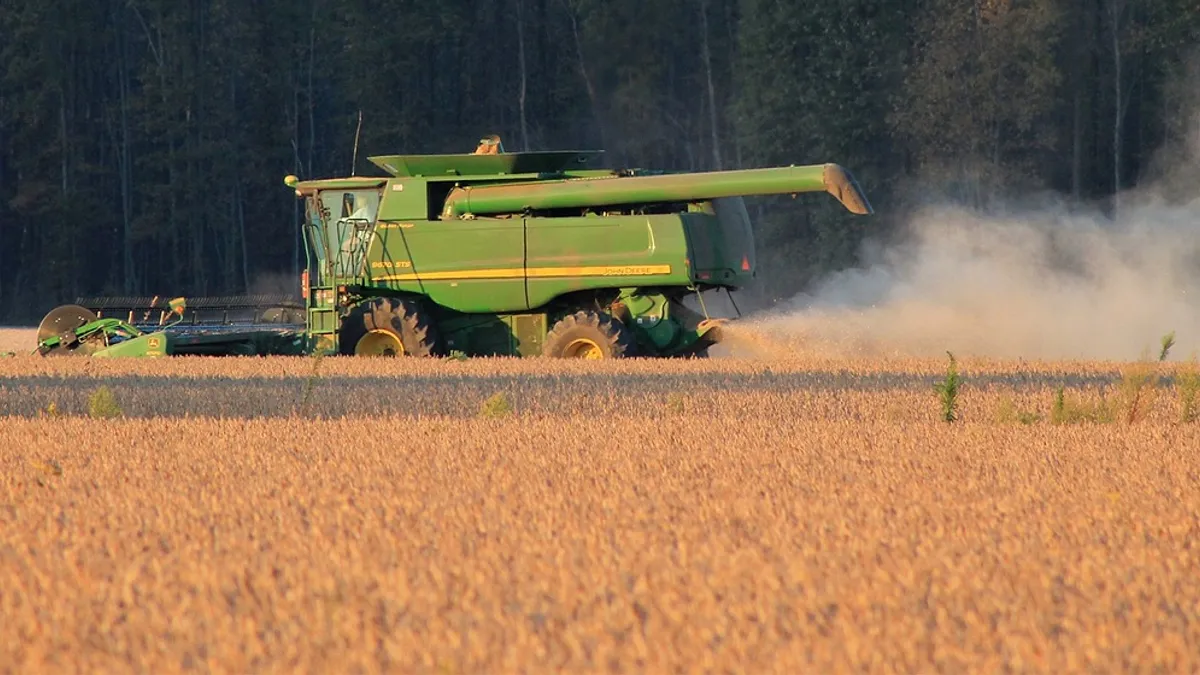Dive Brief:
- China will impose tariffs ranging from 5% to 10% on more than 5,000 products imported from the U.S., valued at $75 billion, according to a notice from the Ministry of Finance. The notice said the retaliatory tariffs come in response to the U.S. announcement earlier this month to slap tariffs on $300 billion of goods from China.
- Some of the duties will take effect Sept. 1 and others Dec. 15, mirroring the U.S. schedule of tariffs on China, after the Trump administration decided to delay tariffs on some products until mid-December.
- Multiple news outlets report the products to be tariffed include agricultural products, apparel, textiles, chemicals, automobiles and oil. China will also reinstate a 25% tariff on U.S. auto exports and a 5% duty on auto parts and components on Dec. 15, which China had previously paused in April, CNBC reports.
Dive Insight:
American farmers have been caught in the middle of the U.S.-China trade war, with retaliatory tariffs from China hitting the U.S. agricultural sector particularly hard.
Since last July, China has taxed soybean imports from the U.S. at a rate of 25%, leaving U.S. soybean farmers with what the American Soybean Association described as a "trade hangover." China is the largest importer of soy in the world by a wide margin. The country accounts for 63% of all soybean imports, valued around $36.6 billion, according to the Observatory of Economic Complexity. Second largest is Mexico, at $1.72 billion.
The tariffs have led to Chinese importers seeking alternative markets for soybeans, namely Brazil, forcing U.S. growers to store product or sell at depressed prices to deplete excess inventory.
The soybean fight escalated earlier this month when Chinese companies decided to boycott purchases of U.S. farm products in response to U.S. tariffs on Chinese imports, although China did recently purchase U.S. soybeans. Adding further fuel to the fire, China will add an extra 5% tariff on U.S. soybean exports starting Sept. 1, according to Bloomberg. This is on top of an existing 25% tariff on the product.
The retaliatory duties also include an extra 10% tariff on U.S. pork exports to China starting next month. Although the U.S. continues to compensate farmers for losses due to China's retaliatory tariffs and buy agricultural product, an analysis by the Midwest Center for Investigative Reporting (MCIR) indicated most pork producers see very little benefit from this program. Instead, pork processor JBS Foods gets the lion's share of the funds.
More broadly, China's imposition of retaliatory tariffs creates further escalation in the ongoing U.S.-China trade war and even more uncertainty, which in itself could prove devastating to the global economy.














